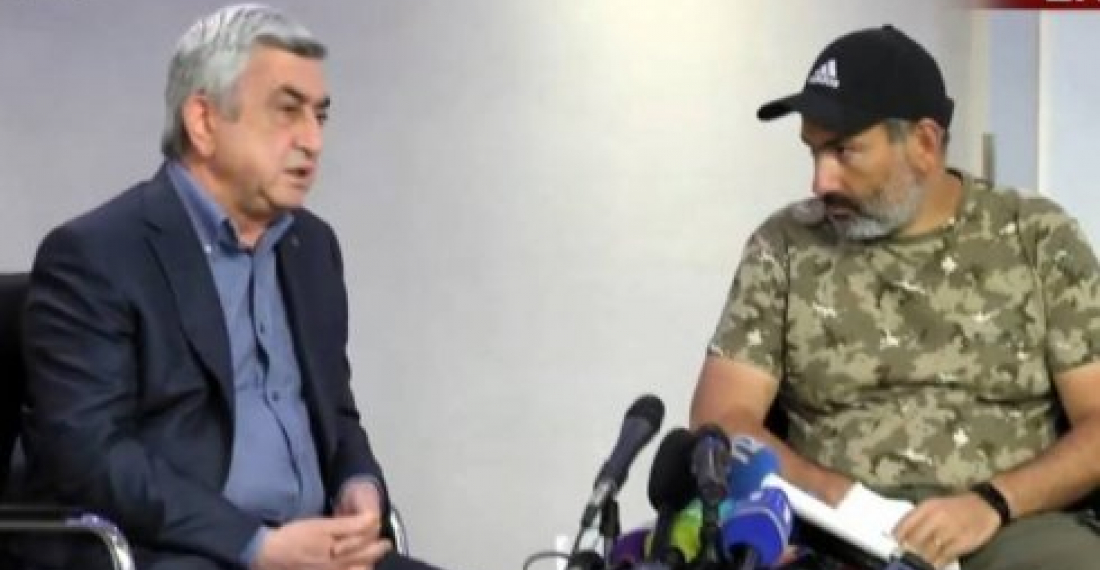A meeting between Armenian prime minister Serzj Sargsyan and the leader of protestors calling for his resignation, Nikol Pashinyan, lasted only a few minutes and was ended abruptly by the Prime Minister who walked out.
Both men arrived for the meeting at the Marriott Hotel in central Yerevan at around 10.00 am. Pashanyan insisted that the meeting be held in the presence of reporters.
According to Armenian media"I am happy that you responded to my numerous calls to talk. Although I don't quite imagine how long we can negotiate in the presence of dozens of reporters, nevertheless I am happy", the Prime Minister said at the beginning.
MP Nikol Pashinyan responded by saying that there is a misunderstanding and that he has come to discuss the PM's resignation and peaceful transfer of power, rather than for dialogue.
"That's not negotiations, that's not a dialogue. That is simply an ultimatum, blackmailing the state and legitimate authorities. You do not realize the degree of responsibility, you didn't learn lessons from March 1 (2008). And if we have to speak in that tone, then I am only left to once again advice you to return to the legal area and overall the limits of reasonable actions. Otherwise the entire responsibility falls on you," Prime Minister Serzh Sargsyan said.
Pashinyan reacted by saying that the situation in Armenia has changed and the power has transitioned to the people.
"A 7-8% parliamentary faction doesn't have the right to speak on behalf of the people. And I don't want to continue this conveersaton with you anymore. If you do not accept the lawful demand of the state, goodbye," PM Sargsyan said and walked out on the opposition lawmaker.
Before departing, the Prime Minister addressed reporters, saying : "Dear reporters, you yourselves can make conclusions".
Sargsyan left the meeting and Pashanyan than returned to his supporters who continue with their street actions in various parts of the country.
source: commonspac.eu with armenpress.am and other media outlets
photo: A tense meeting between Armenian prime minister Serzj Sargsyan and the leader of protestors Nikol Pashanyan at the Marriot Hotel in Yerevan on 22 April 2018 (picture courtesy of armenpress.am)







